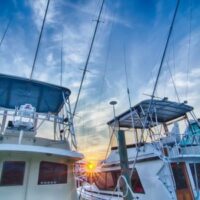What to Do After Being Hurt in a Charter Vessel or Tour Boat Accident

When you schedule a charter or take a boat tour, your expectations are high. You expect to have a relaxing, fun, and safe day on the water. You expect to go home with fond memories and photos, and that the company will put your experience first. Sadly, this does not always happen. Charter vessel and tour boat accidents are far more common than many people think.
Whether you are heading to a reef offshore or cruising the Intracoastal Waterway (ICW), an accident involving a tour boat or charter vessel can occur anywhere, and they happen for a number of different reasons. In these instances, you do have clear legal rights. Our Florida maritime accident lawyer can inform you of what they are, and make sure they are upheld.
Why Do Charter Vessel and Tour Boat Accidents Happen?
Like all operators of watercraft, charter and tour boat companies have a legal duty to make sure their vessels are seaworthy and that their crew are capable of ensuring the safety of passengers while they are onboard. Despite this, accidents are still fairly common. A number of failures can result in a crash, but the most common of them are as follows:
- Improper vessel maintenance: From broken trim tabs on yachts to rigging failures on sailboats, there are multiple maintenance issues that can substantially increase the chance of colliding with another vessel or another type of accident. While charter and tour boat companies have a duty to properly maintain their watercraft, they do not always fulfill it in order to cut corners and save costs.
- Inexperienced crew members: Captains and crew members of charter and tour boats must be properly experienced and capable so they can get everyone home safely. Companies notoriously do not always hire experienced crew or train them properly, usually again to cut corners. We regularly see that the crewmen for one date of loss/accident were not working for the company for very long.
- Overloading: All watercraft have capacity limits but in order to increase profits, companies sometimes overload their vessels. This can compromise the navigational ability of the vessel and easily result in an accident.
What to Do After a Charter Vessel or Boat Tour Accident?
The three most important steps to take after a charter vessel or boat tour accident are as follows:
- Seek medical treatment: Receiving medical treatment is essential after any accident. Not only does it prevent your injuries from becoming worse, but it also documents and proves your injuries.
- Document the accident scene: If you or your family can, take photos and video footage of the accident scene. This can prove how the accident occurred and who is liable.
- Document your injuries: Taking pictures of your injuries can prove the nature and severity of them.
- Make sure law enforcement is contacted: This often happens when there is a serious injury, but if not, make sure Florida Fish and Wildlife Conservation Commission (“FWC”) are contacted and/or the U.S. Coast Guard for coastal cases. This is important because FWC and/or USCG will conduct an investigation into the cause of the accident. Usually local police departments will respond, but will hand over any investigation to FWC or USCG once those agencies arrive on scene.
Call a Maritime Accident Lawyer in Florida Today
If you have been hurt while on a charter or tour boat, our Florida maritime accident lawyer can help. At 888-BOAT-LAW, our experienced attorney can help you take the next important steps that will fight for a full and fair result you deserve. Call us now or contact us online to get the immediate help you need.
Source:
law.cornell.edu/wex/negligence
